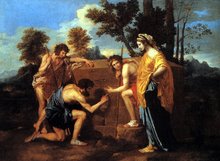- History is all about blood-shed
- History is all about bloodlines
- History is all about genetic traits
Which ever way you take it, there is a definite ring of truth. The expression "History goes to the victors!" is one with which I would definitely agree, because it is clear to me that many of our accepted views of historical events are false, precisely because it is the accounts of the victors which we rely on, when events were entirely different to what was actually recorded. For instance, Hitler didn't ensure that accurate records were kept for posterity regarding the genocidal atrocities, which he had ordered. Had he been victorious we might never have known other than in rumour.
Many other historical events follow the pattern whereby there is no external verification of events, such as Tacitus' account of Gnaeus Julius Agricola's defeat of the Picts at the battle of Mons Graupius. Julius Agricola was the father-in-law of Tacitus, so clearly had a vested interest in promoting the achievements of Agricola. It is actually debatable whether the battle even took place, and little evidence to suggest that the Romans managed to cross the River Spey, which presented a formidable barrier, especially if the Picts held the opposite bank. However, Tacitus knew that the Picts could not relate their version of events and so history tells us only what he, Tacitus, had to say.
As far as blood-letting effects history, you might suppose that War can have a positive effect on society because the superior force would win. However, using the First World War as an example, it could be suggested that the War set Britian back hundreds of years, because the majority of its brilliant young minds were needlessly killed. Meanwhile, back on the farm, the half-witted labourers spawned the next generation. A serious setback for the gene pool.
Blood-lines have played a significant part in the history of the UK, for over 1000 years this nation was controlled by an elite, who largely inter-married with each other and held on to titles, vast tracts of land, wealth, and small armies of servants. In this respect, they held what they did by virtue of blood.
How can genetic traits influence the course of history. As an example of how inter-breeding can impact heavily on society, I would highlight the Roman Emperors and the Pharaonic Dynasties. Doubtless, the irrational and often insane behaviour displayed by many of them was a direct consequence of incest. Obviously, I'm focusing on the negative viepoint here, but conversely, a broader gene pool does result in more intelligent offspring. Anyone with a broad spectrum of ancestral origins, I'm sure will quite clearly demonstrate proof of what I'm suggesting!









